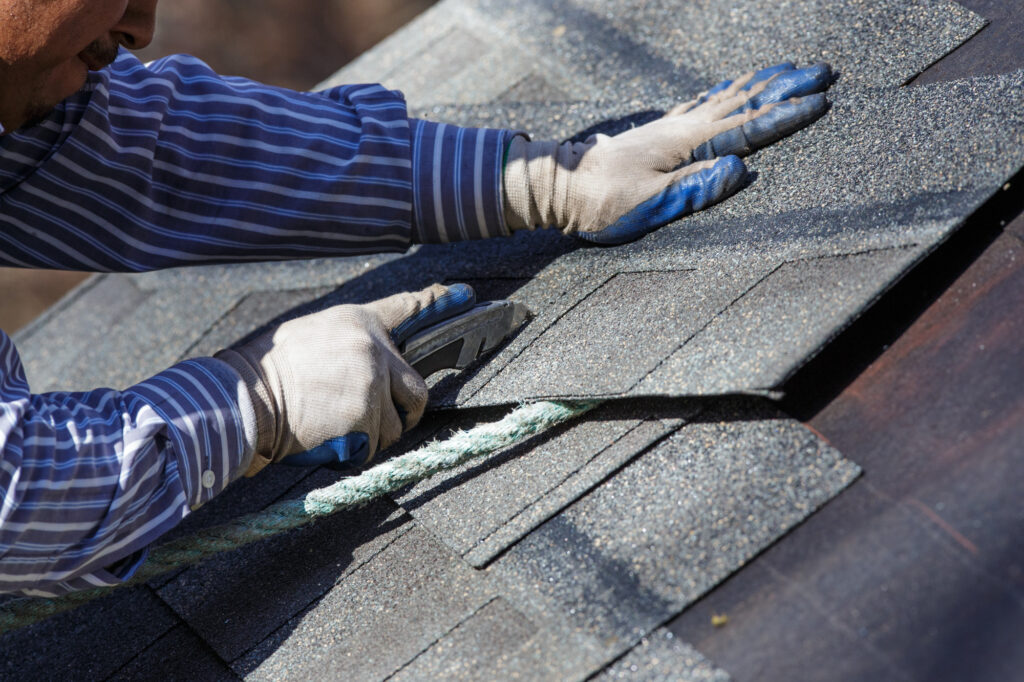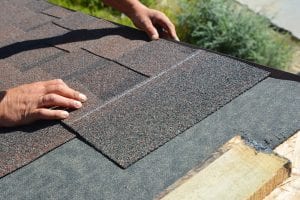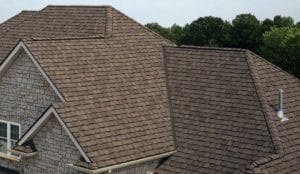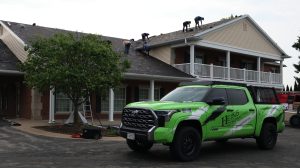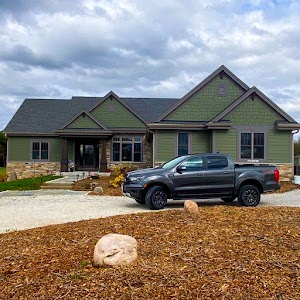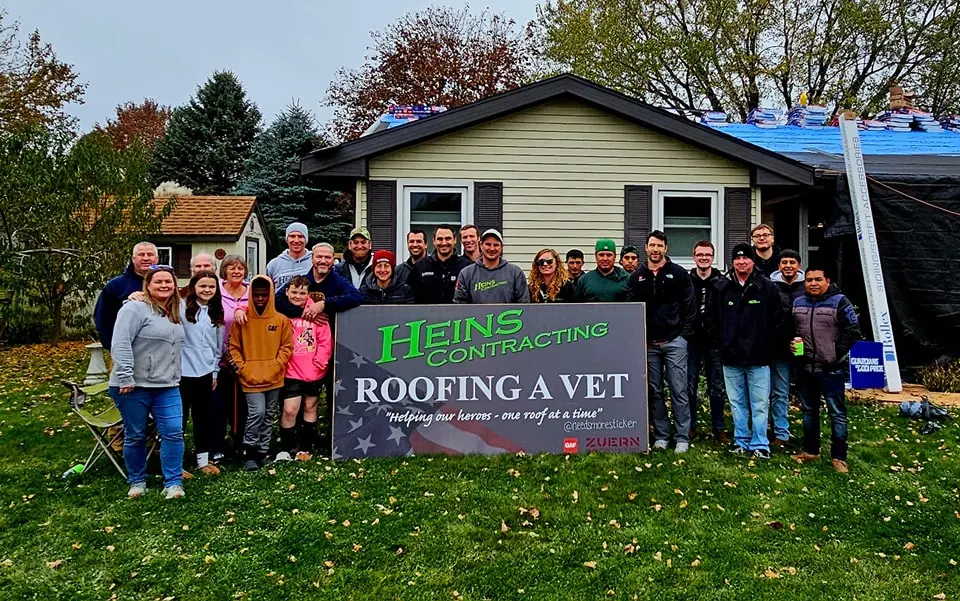If you’re researching the best roofing materials, the varieties can be incredibly overwhelming. There are so many types that the roofing market is expected to hit $19 billion by 2021. The roof is arguably the most essential part of the house because it protects the rest of the structure and keeps your family safe.
For this reason alone, you need to ensure that you install the best roof possible for your home. The thing is, even with so many types of roofing materials, asphalt shingles and metal roofing happen to be among the best, and for good reasons too.
The question is when you consider metal vs. asphalt roof, which one would come up top?
Though both these options are great for residential roofing, one may be more suitable for your home than the other. To help you decide, we bring you this comprehensive guide of metal vs. asphalt roof, and hopefully, help you make an informed decision.
Metal vs. Asphalt Roof Options
When most people think about metal roofs, they think about those old-fashioned corrugated aluminum, steel, or tin roofs that can be quite the eyesore.
On the contrary, metal roofs have become quite sophisticated and utterly gorgeous to look at. Steel roofs are especially very diverse, and you have tons of options to choose from to suit your home style and decor.
Even better, a metal roof can be designed to resemble asphalt shingles, so if you like all the features of a metal roof but not the look, then that can easily be fixed. Of course, asphalt shingles are not to be outdone because they are super durable and do very well with harsh outdoor elements like snow and high winds. However, for asphalt shingles to last as long and remain as efficient, they need to be installed by a professional roofing contractor.
Asphalt roofing still dominates the US roofing industry and is expected to reach 1.5 billion square meters by 2025. The longevity of any asphalt shingle, though, is determined by the construction quality, and shingle thickness. The modern asphalt shingles are composed of fiberglass mat, asphalt, and mineral granules.
Fiberglass mat is the core of the shingle, and it’s lightweight and holds the asphalt together. The mat is coated with asphalt, then finally coated with the mineral granules that give the shingles different colors. During installation, continuous lines of raw asphalt are applied to hold the shingles together.
Metal vs. Asphalt Roofing Varieties
Essentially, the word metal covers a broad range of materials, including steel, aluminum, zinc alloys, and copper. Of course, all these materials vary in appearance, durability, and price. Steel and aluminum are by far the most popular as they are durable, economical, and hold paint quite well.
Steel roofing is sturdier and heavier compared to aluminum. It comes in several different gauges, which determine the durability, and they come in either galvanized or galvalume coatings.
Aluminum roofs, on the other hand, are relatively softer, lightweight, and not quite as rigid as steel. One of the most significant benefits of aluminum is that it doesn’t rust or corrode, which may happen to steel if the coating is compromised.
It’s especially suitable for coastal areas where steel may rust as a result of salty air. Beyond these two options, you can choose a copper metal roof, though relatively expensive.
Copper roofs offer a ton of benefits, like how durable it is and could outlive the house it sits on, and how it doesn’t rust. Additionally, it weathers beautifully and is easily recyclable. Alloy is just as good and is formulated for durability, graceful weathering, and strength, but it can be just as expensive.
Stainless steel is the last option, and even though it doesn’t rust or corrode, unlike steel, it’s super expensive as well.
Types of Asphalt Shingles
When it comes to asphalt roofing, there are three main types of shingles, which are 3-tab shingles, dimensional shingles, and luxury shingles.
3-tab shingles, which are also known as strip shingles, are the most basic asphalt shingles and are only made from one layer of asphalt. They weigh and cost less than the other shingles.
Dimensional shingles, also known as laminate or architectural shingles, feature to or more layers of asphalt fixed together to create a dimensional effect. They are heavier compared to strip shingles, and essentially, more durable.
Luxury shingles, on the other hand, are the highest quality asphalt shingles. They are absolutely stunning to look at, and the heavyweights that offer optimum protection from the weather elements. They are highly durable as well and will increase the value of your home exponentially.
Metal Roof vs. Asphalt Roof Appearance
Both metal and asphalt roofs come in a wide range of colors, and you can get almost any aesthetic appeal that would perfectly suit your home style and decor. Metal roofs come either in panels, shingles, or tiles, and the paint finish can be acrylic or Kynar 500. The right kind of finish is vital to the overall look and durability of the roof, so choose wisely.
On the other hand, asphalt shingles can be made to match any paint or brick color of your home, and the overall look will depend on the shingles you choose. Asphalt has a more popular aesthetic appeal, and while metal is just as good, a lot of people associate it with commercial properties.
Asphalt Roof Shingles vs. Metal Roofs Installation
Installing asphalt shingles is a lot easier compared to metal roofs, and it could take a day or two depending on the size of your home. Asphalt can be quite heavy, though, and you need to ensure you hire a professional roofing company to get it done right. Metal roofs, on the other hand, are much lighter, but you must install plywood or oriented strand boards before installing the roof.
This essentially eliminates any noise from the metal, and you won’t have to deal with the noise that comes with hail, rain, and storms. Both types of roofs should be installed by professionals both for safety and warranty.
Metal vs. Asphalt Roof Energy Efficiency
Metal roofs can decrease your energy bills by up to 40% in summer because the reflective surface of the material reflects the heat away from the house.
Asphalt shingles, on the other hand, tend to absorb a lot of heat. This means that an asphalt roof would be much suitable for temperate climates. However, you can find asphalt shingles with an Energy Star Rating, which will have higher energy efficiency.
Metal Roof vs. Asphalt Shingles Durability
Metal roofs are highly durable, which is the reason they cost more compared to asphalt shingles. Most metal roofs come with a 50-year warranty and could last as long as 60 years.
Asphalt shingles, on the other hand, come with warranties ranging from 20 to 25 years, and they are more susceptible to high wind and hail damage.
One of the downsides of asphalt roofs is that if they fail to get adequate sunlight, they accumulate mildew, algae, and mold. This is unlike metal roofs, which are impervious to mildew, mold, and algae, and hold up very well to bad weather and harsh conditions.
Metal vs. Asphalt Roof Fire Resistance
All metal roofs are fire-resistant, while some manufacturers rate their asphalt shingles Class A for fire safety. This means that metal roofs come up top and are more suitable to areas prone to wildfires.
Metal vs. Asphalt Roof Recyclability
Metal roofs also take this one because they are all completely recyclable. Once they are disposed of, they can be used to make a wide variety of products.
On the other hand, very few asphalt roofing options are recyclable, although manufacturers are looking for ways to change that.
Asphalt Roof vs. Metal Roof Maintenance and Resale Value
Asphalt is much easier to repair than metal because metal roofs come in sheets or tiles that must be replaced. Asphalt is also cheaper to repair, but in essence, asphalt roofs are more prone to damages, while metal roofs are easier to maintain and will require less frequent repairs.
When it comes to resale value, given that metal is more durable and more energy-efficient, the relative value is much higher compared to asphalt.
The Pros of Asphalt Roofs
Asphalt roofs are accepted and trusted across the board, and most homeowners are comfortable with it.
- They are economical and low cost, which makes them desirable
- They are easy to work with and easy to install
- They are just as easy to repair
- They come in a wide variety of styles, textures, and colors
With these benefits, asphalt roofs stack up well against the competition.
The Cons of Asphalt Roofs
Asphalt roofs have a few drawbacks. Here are some of them:
- They are susceptible to adverse weather conditions
- Not as durable as metal roofs and longevity, even for 20-30 years depends on the maintenance
- They are heavy
- Recycling industry for asphalt is still young
Overall, these are still some of the best roofs you can find on the market.
The Pros of Metal Roofs
The benefits offered by metal roofs allow homeowners to cover their houses with a material of long-term value. Here are some of the benefits:
- They are lightweight
- They offer longevity and excellent weather resistance
- Come with long warranties
- They offer stellar extreme weather performance
- They are environmentally friendly and recyclable
Are you considering a metal roof? These benefits should convince you to go for the option.
The Cons of Metal Roofs
Despite the advantages, metal roofs have some disadvantages. Here are a few:
- They can be quite expensive compared to asphalt
- they have a harsh appearance more residential owners don’t like
- They can feature extreme expansion and contraction
- Performance depends on finishing and type of metal chosen
Consider the pros and cons carefully before making a decision.
Metal vs. Asphalt Roofs: The Ultimate Comparison
There you have it! This is our ultimate metal vs. asphalt roof guide, and it highlights everything you need to know about both roofing options. This will make it easier for you to make an ideal choice.
If you have any questions regarding any roofing type or anything you’d like clarified, please get in touch with our team of roofing professionals, and we’ll be more than glad to be of assistance.
Beyond that, you can check out our website for more roofing options, and once you come to a decision, our professionals are also available for expert roof installation. Give us a call today!

